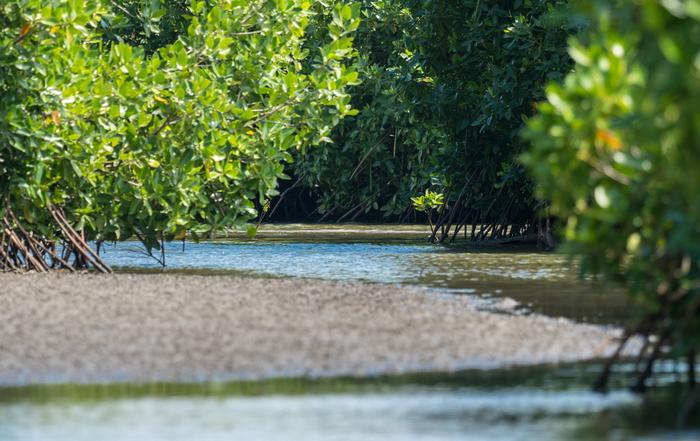Driven by climate change and pollution, the decline of oxygen levels in oceans is altering biogeochemical cycles, threatening marine plants, animals and ecosystems. But how accurately are we projecting the fate of marine life? If models of marine ecosystems are to truly inform management — especially of coastal areas — they must account for the variation in oxygen levels across time and space, KAUST researchers say.

Credit: © 2023 KAUST; Morgan Bennett Smith.
Driven by climate change and pollution, the decline of oxygen levels in oceans is altering biogeochemical cycles, threatening marine plants, animals and ecosystems. But how accurately are we projecting the fate of marine life? If models of marine ecosystems are to truly inform management — especially of coastal areas — they must account for the variation in oxygen levels across time and space, KAUST researchers say.
“Our study provides a perspective on the monitoring of oxygen decline in the ocean from a different angle,” says principal investigator Daniele Daffonchio. “Oceanic systems have a natural mechanism for regulating oxygen dissolution by balancing oxygen-consuming (respiration) and oxygen-producing (photosynthesis) processes.”[1]
Current models fail to project oxygen dynamics of coastal ecosystems that have an abundance of organisms that photosynthesize, says marine scientist Marco Fusi, who led the study with Folco Giomi from the University of Padova, Italy. Examples include seagrass meadows, mangrove forests and coral reefs. “It’s a very different dynamic from what’s seen in unproductive parts of the ocean in some cases called the ‘blue desert,’” he says.
In an initial observation of crabs in a mangrove forest, Fusi found they could survive in waters reaching over 40 degrees, well above their known thermal threshold. The waters were “oxygen-supersaturated,” a state in which more oxygen was dissolved in the water than would be through equilibrium with the atmosphere. This extra oxygen production due to warmer temperatures was helping the crustaceans cope.
The researchers also discuss fluctuations in the Venice Lagoon, once considered one of the most oxygen-depleted “dead zones” in the Adriatic Sea. The lagoon hosts a complex mosaic of ecosystems that include seagrasses and salt marshes colonized by microalgae and cyanobacteria. While dissolved oxygen was low at night, the lagoon reached nearly 300 percent saturation during the day.
Data from coral reefs in the Red Sea — formerly regarded a low oxygen zone due to high temperatures — shows a similar pattern. “The marine species in these areas are accustomed to living in a rollercoaster of oxygen levels,” says Fusi.
The team advises that conservation management should be based not on linear models focusing on average values of dissolved oxygen, but on a more complex mathematical model that incorporates the variation.
“Predictions of biodiversity loss in the Red Sea from two decades ago indicated that 90 percent of biodiversity would have been lost by now. That hasn’t happened yet. This could mean two things: that the modeling had been too simplistic and that species living in productive marine ecosystems have high capacity for adaptation,” says Fusi. “Our hope is that our study boosts the discussion on how we could better incorporate fluctuations into models and of new methods to study the resilience of marine species.”
Journal
Nature Geoscience
DOI
10.1038/s41561-023-01217-z
Article Title
Oxygen dynamics in marine productive ecosystems at ecologically relevant scales
Article Publication Date
3-Jul-2023




